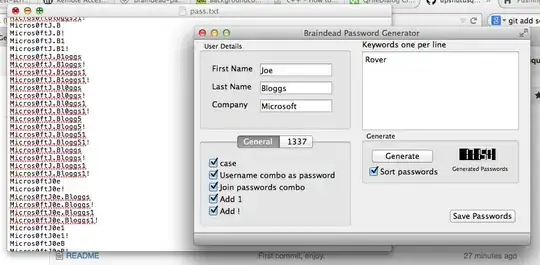I have found during testing that companies often use variations of their names for critical passwords (for example Microsoft's password might be M1cr0s0f+ or m1cros0ft etc etc).
So if I gave it the phrase "stack exchange' it would ideally compute as many logical variations as possible including things like:
stack_exchange!
I've seen many dictionary generators but they all seem to do something along the lines of
aaaaaaa
aaaaaab
aaaaaac
aaaaaad
I'm wondering if there are any tools available that will allow me to generate a large number of permutations given a 'starting' word.
